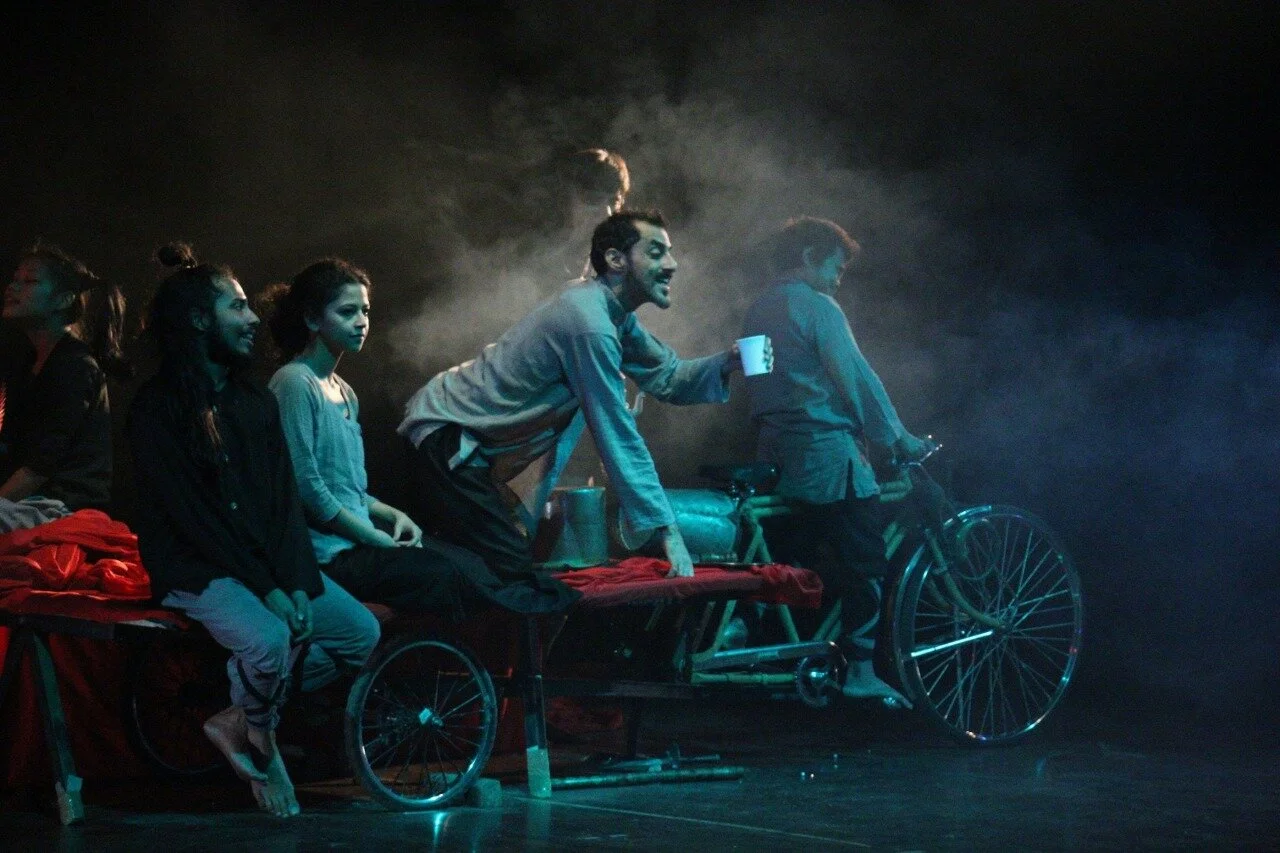Alumnus Update: Dilip Menon
Dilip Menon is a 1984 scholar who pursued an M.Litt in History at Balliol College, University of Oxford.
He is the Mellon Chair in Indian Studies at the University of Witwatersrand in Johannesburg. His areas of research are in the broad fields of World Literatures, Cultural History and Cultural Anthropology.
His books include 'Caste, Nationalism and Communism in South India: Malabar 1900-1948', 'The Blindness of Insight: Essays on Caste in Modern India', and the English translation of the 19th c Malayalam novel Potheri Kunhambu’s 'Saraswativijayam', the first to be written by a lower caste individual in an Indian language
Dilip’s current projects include thinking the historical imagination in South Asia and knowledges from the global south.
Thinking the World Afresh
One of the things that dawns on one late in one’s academic career, is the fact that academic production is premised on a simple division of labour: southern fact, northern theory. We tend to write our histories and descriptions of our societies in the terms of histories that come from elsewhere, to use Tagore’s plangent phrase. Regardless of whether we are writing on Malappuram or Medinipur, we rush to explain human action through drawing upon Euramerican social theory. As the phrase goes, when France catches a cold, India sneezes. Our academics are up on the latest theorist from Europe, while we remain largely unaware of traditions of intellection from India and elsewhere in what we might term the global South. Not that there is no work available. It is just that the vast contemporary academic literature on Indic, Arabic, or Chinese thought is banished to the space of Indology, philosophy, or merely tradition and deemed irrelevant for an understanding of the modern world. This state of affairs has been termed a state of postcolonial amnesia by the Indian literary critic Ganesh Devy and a manifestation of the colonial wound, in the words of the South American feminist, Maria Lugones.
How do we move beyond this situation? I founded the Centre for Indian Studies in Africa at the University of Witwatersrand in 2010 (after teaching in India, England, and the USA) with major funding from the Andrew W Mellon Foundation. The remit was to think with histories beyond the national and knowledge from the global south. Over ten years through graduate programs, postdoctoral fellowships, conferences, and workshops we created a paradigm for the study of oceanic histories; thinking with the maritime than the terrestrial. The movement of people, ideas, and material was central to our understanding of history rather than merely the histories of nation-states and their borders. Moreover, we began to bring together scholars working on China, Latin America, the Caribbean and Africa to begin a dialogue about our long traditions of thinking about the world, community, and selves. The postcolonial theory of an earlier generation had brought the narratives from these spaces to the forefront but mediated through Euramerican theory. We engaged with the project of the creation of a multilingual conceptual vocabulary engaging with languages from Arabic to Zulu.
Moreover, in my work, I felt that the division of the world into pre-colonial, colonial, and postcolonial was limiting since it rested on the colonial hinge and abbreviated our thinking with history to the past four hundred years. I began to work with the idea of the paracolonial, that is to say, that colonialism was one of the times in which people lived and produced knowledge. In many senses, older traditions of knowledge, routes of travel and trade on the ocean, and the movement of religious specialists and rebels continued in a parallel circulation. There was another geography beside the imperial one, and other histories. Another question was of how far back we had to go in order to study the history of the present. Divisions into ancient, medieval, modern and so on seemed to create a myopia which sequestered lives and knowledge into prison houses.
With funding from the Mellon Foundation, we organized Theory from the Global South workshops bringing together young scholars from Africa and the Arab world. Alongside nurturing a younger generation, we brought together like-minded scholars towards a rethinking of the world. Our first conference on Capitalism moved away from the standard narratives of European origins and the short temporality of the 18th c to look at the period from the 10th to the 18th centuries from China to South America. The papers were published in a volume Capitalisms: Towards a Global History (Oxford, 2020) that rethought conventional narratives of origin and innovation. Two further conferences on knowledge from the global south led to the second volume, Changing Theory: Concepts from the Global South (Routledge, 2022) with 20 essays on individual words in 16 languages from Mandarin to Wolof and Sanskrit. It takes a community of scholars to produce a new paradigm. This volume is already being translated into Mandarin, and we are working towards an Arabic translation as well.
It is in recognition of this conceptual work, that I will be awarded the Social Sciences and Humanities breakthrough award for 2021 by the Falling Walls Foundation, Berlin. The other scholars are based in Europe and America and in the Ivy League universities. I believe firmly in the politics of location; a new paradigm for thinking the histories of the global South can only emerge from our spaces. A luta continua
In February 2021, Dilip conducted a session for 'Thinking Aesthetic Production in the Global South', an online workshop hosted by the Kochi Biennale Foundation. The workshop discussed cultural production in the Global South. Facilitators included Arjun Appadurai, Saloni Mathur and Bonaventure Ndikung. Dilip Menon presented the first session.








